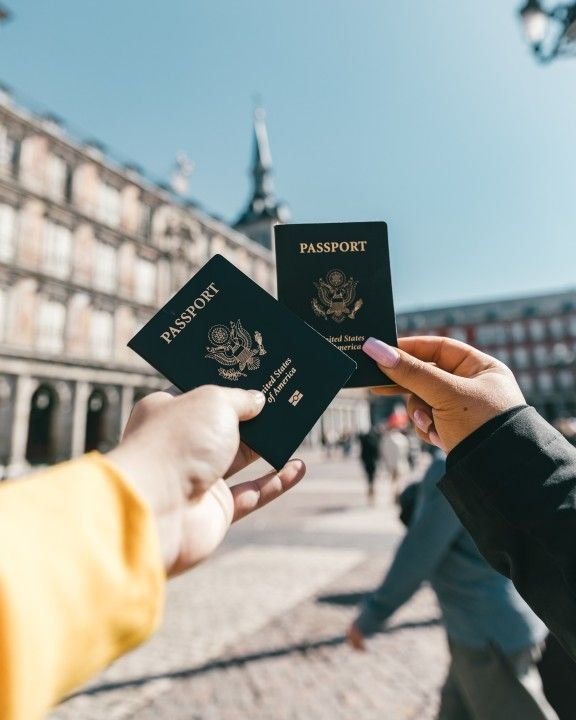If you hold dual nationality and plan to visit Sri Lanka, understanding the visa requirements and processes is essential. This guide will explore the ins and outs of obtaining a Sri Lanka visa with dual nationality, ensuring a hassle-free travel experience.
Understanding Dual Nationality and Its Impact on Visas
Dual nationality means holding citizenship in two countries simultaneously. This status often affects international travel, as different nations impose varying visa requirements. When it comes to Sri Lanka, having dual nationality might offer certain advantages, but it also necessitates adherence to specific rules for securing a visa.
Do Dual Nationals Need a Sri Lanka Visa?
Yes, dual nationals require a Sri Lanka visa with dual nationality unless one of their citizenships is Sri Lankan. The visa requirement applies regardless of whether you are traveling for tourism, business, or other purposes. The type of visa and its application process may vary based on your travel intent and the passport you choose to use.
Choosing the Right Passport for Sri Lanka
Dual nationals often possess two passports. For entering Sri Lanka, the passport you use determines the visa requirements. For example:
- If one of your nationalities is Sri Lankan, you may not need a visa.
- If neither nationality includes Sri Lankan citizenship, you’ll need to apply for a visa in advance or upon arrival.
When applying for a Sri Lanka visa with dual nationality, it’s advisable to use the passport that offers the most visa advantages, such as visa-free or on-arrival options.
Types of Sri Lanka Visas for Dual Nationals
Dual nationals can apply for various types of visas based on their purpose of visit:
- Electronic Travel Authorization (ETA):
The most common option for short-term visits. Available for tourism, business, or transit purposes, the ETA can be obtained online. - Tourist Visa:
Valid for leisure travel, this visa allows dual nationals to explore Sri Lanka’s scenic landscapes and cultural heritage. - Business Visa:
For work-related trips, dual nationals can apply for a business visa to conduct meetings or attend events. - Residence Visa:
If you plan to live in Sri Lanka, this long-term visa requires additional documentation.
How to Apply for a Sri Lanka Visa with Dual Nationality
1. Determine Your Visa Type
Choose the visa that matches your travel purpose. Whether it’s an ETA or a residence visa, your application must align with your travel intent.
2. Gather Required Documents
Typical requirements include:
- A valid passport from either nationality.
- A completed visa application form.
- Recent passport-sized photographs.
- Proof of travel plans (e.g., flight tickets, accommodation).
- Financial statements, if applicable.
3. Submit Your Application
- For an ETA, apply online through the official Sri Lankan immigration website.
- For other visa types, visit the Sri Lankan embassy or consulate in your country.
4. Pay the Visa Fee
Visa fees vary depending on your nationality and the visa type. Payments can usually be made online or at the embassy.
5. Wait for Approval
Processing times for a SRI LANKA VISA REQUIREMENTS may range from a few hours (for ETAs) to several weeks (for residence visas).
Benefits of a Sri Lanka Visa for Dual Nationals
- Ease of Travel:
A visa simplifies entry and stay in Sri Lanka, ensuring compliance with local laws. - Flexibility:
Dual nationals can select the passport that offers better visa privileges. - Streamlined Applications:
Online visa platforms, like the ETA system, make it easier for dual nationals to secure travel authorization.
Common Challenges for Dual Nationals
Despite the benefits, dual nationals may face certain challenges when applying for a Sri Lanka visa with dual nationality:
- Confusion Over Rules:
Dual nationality rules vary, leading to uncertainty about which passport to use or the specific visa requirements. - Documentation Issues:
Ensuring consistent documentation, such as matching names and details across passports, can be challenging. - Higher Visa Fees:
Some nationalities face higher visa fees, which may affect dual nationals depending on the passport they use.
Tips for Hassle-Free Visa Application
- Check the Latest Requirements:
Visa rules for dual nationals may change. Visit the official Sri Lanka Immigration website for updates. - Use Reliable Resources:
Ensure you apply through trusted sources, avoiding third-party scams. - Keep Both Passports Ready:
Having both passports accessible helps avoid complications at immigration checkpoints. - Understand Your Entry Rights:
If one nationality grants you visa-free entry, confirm whether this applies to your planned activities in Sri Lanka.
Sri Lanka Visa Exemptions for Dual Nationals
If one of your nationalities is Sri Lankan, you might be exempt from needing a visa. Sri Lankan citizens often enjoy unrestricted entry and extended stays in their home country. Ensure your Sri Lankan passport is valid if you intend to use it for entry.
Final Thoughts
Securing a Sri Lanka visa with dual nationality requires careful planning and adherence to the specific requirements for your chosen nationality and visa type. By understanding the rules, gathering the necessary documents, and staying informed, dual nationals can enjoy a seamless travel experience in this beautiful island nation.
Whether you’re visiting for leisure, business, or to reconnect with your roots, Sri Lanka offers a welcoming environment for dual nationals eager to explore its rich culture and natural beauty.

